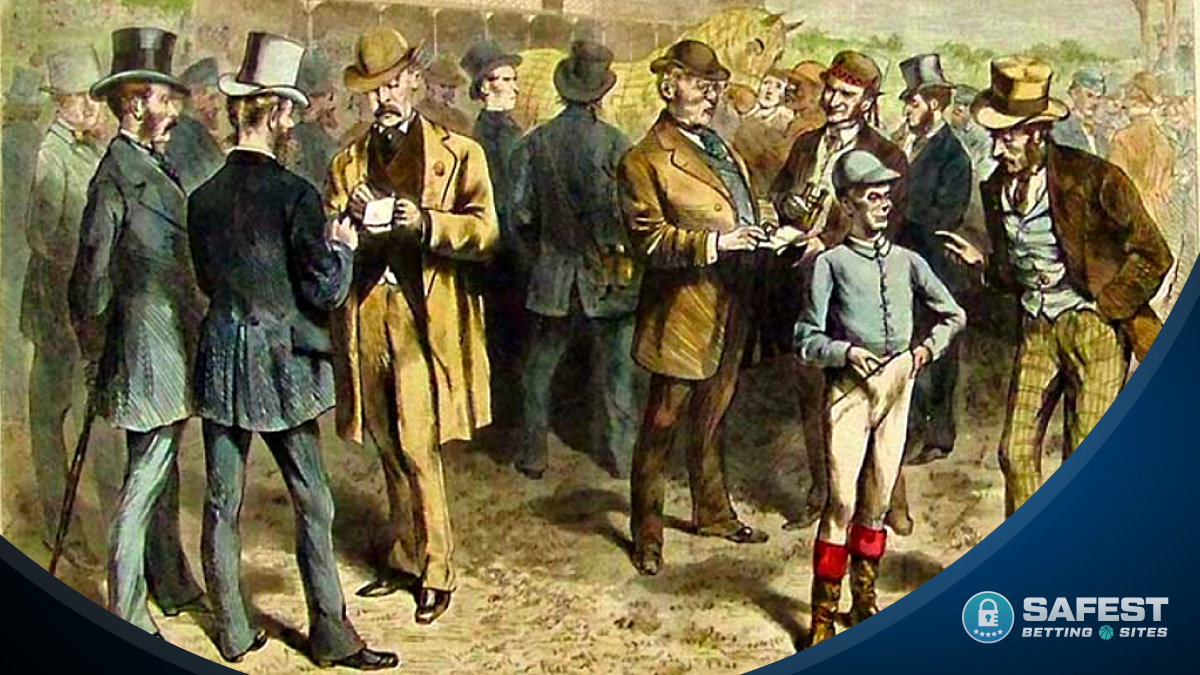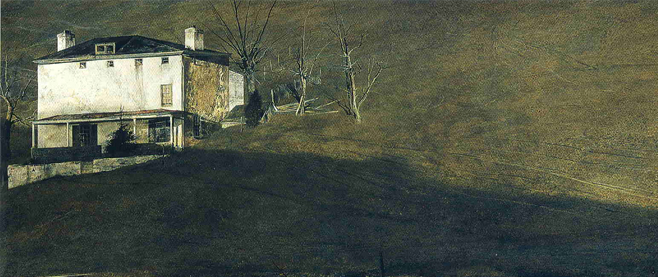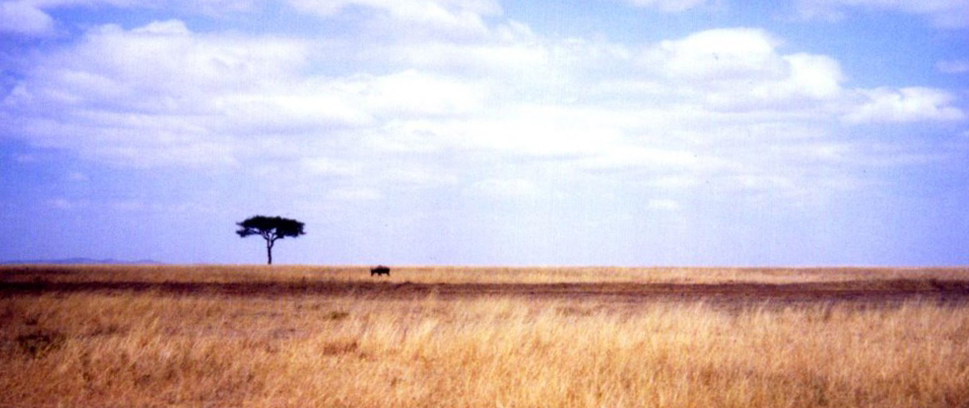The History Behind Sports Betting
The concept of betting on the outcome of a game or match has likely been around for thousands of years. Within the U.S., gambling migrated to the British colonies as lotteries.
Lotteries paid for things like universities, churches, and public welfare programs. The Continental Congress even issued lottery tickets to help finance the Revolutionary War.
In England, betting on horse racing and boxing also became popular. Gambling then evolved to team sports, such as cricket, soccer (football), and rugby.
Let’s look at some of the most pivotal moments in the history of sports betting.
Federal Ban on Gambling in 1860: Horse Racing Stays Legal
Gambling laws in the U.S. often pertain to legislative actions via territory or state. Due to corruption, gambling became illegal at the federal level in 1860.
Horse racing remained legal.
In Nevada, the territorial legislature attempted to ban games of chance in 1861. Three years later, Nevada became a state. The legislature then sought to legalize gambling.
Both of those attempts failed. It led to more leniency in the state about illicit gambling activities.
In 1869, Nevada decriminalized certain forms of gambling. Two years prior, in 1867, the first Belmont Stakes took place in the Bronx.
The first Preakness Stakes came in 1873—held in Maryland. Then, the Kentucky Derby began in 1875.
By 1890, there were more than 300 horse tracks. This style of sports betting originated among wealthy elites in the U.S.
Gambling Bans and The Black Box Scandal in the Early 1900s
The Progressive Movement in the early 1900s initiated policies of social responsibility. It also ushered in further gambling bans across the U.S.
Nevada criminalized casino gambling in 1910, along with most of the country. Horse racing became illegal in New York and relegated to Kentucky and Maryland.
The popularity of betting on boxing also soured as it became outlawed.
In 1919, one of the most well-known events in sports betting history occurred. It was the Black Sox Scandal.
The favored Chicago White Sox lost the World Series to the Cincinnati Reds, five games to three. In the aftermath, some sports writers alleged a conspiracy.
In September 1920, a grand jury began investigating those allegations. Some of the White Sox players admitted to taking monetary bribes to lose on purpose.
Seven of the eight players involved in the conspiracy got suspended. That led to some of them standing trial in the summer of 1921.
Confessions went missing from grand jury files, acquitting the players of all charges. The next day, the MLB commissioner banned the players from the league for life.
Arnold Rothstein, a corrupt racketeering businessman from New York, remained the major culprit. The bribes totaled $70,000 – $100,000.
This scandal left its mark on the history of sports betting forever.
Mid-20th Century: Gambling and Sports Betting Take Root in Nevada
The birthplace of modern sports betting originated in Nevada. At the start of the Great Depression, in 1931, the state’s legislature passed a bill to legalize gambling.
Four casinos in downtown Las Vegas became the first to receive licenses.
Pari-mutuel horse betting also became popular in the U.S. in the 1920s and 30s. A “totalizer” calculator—or a tote board—helped to legitimize this form of gambling.
The betting pool came from the total amount of bets in any given race. If one horse took a lot of action, its payout would be small. And vice versa for longshots.
A few states legalized pari-mutuel betting on horses in 1933. More states legalized it in the following years.
In the early 1940s, the Las Vegas Strip began to take root as the world’s gambling capital.
Tourists flocked to Nevada for its new casino resorts as horse betting waned during World War II. Tax laws changed, and development continued.
This flourishing environment led to Nevada’s legalization of sports betting in 1949.
The U.S. Congress passed a 10% tax on sports bets in 1951.
As gambling became Nevada’s top industry, the state sought to maintain its integrity. They established the Gaming Control Board through its Tax Commission in 1955.
Next, the Gaming Control Act sought to establish the Nevada Gaming Commission. The act passed in 1959.
These gaming officials became responsible for issuing licenses and maintaining The Black Book. The Black Book developed into a list of cheaters and banned players.
This framework initiated a gold standard for sports betting and other gambling activities.
Reducing the Sports Betting Tax: Gambling Grows Outside Nevada
Throughout the 1960s, Nevada’s gambling industry continued to expand. In 1971, Congress lowered the sports betting tax to 2%. This instigated a secondary growth period for legal sports betting in the state.
In 1975, Nevada’s state legislature reduced the tax on sports bets. This helped to increase new casino-based sportsbooks.
The Union Plaza Hotel and Casino in Las Vegas became the state’s first legal sportsbook at a casino. The Stardust Hotel and Casino opened their sportsbook in the following year.
Illegal sports betting continued elsewhere.
In 1976, the U.S. Commission on the Review of the National Policy Toward Gambling released a report. They claimed eighty percent of Americans viewed gambling in a positive light.
The report also suggested that states be responsible for their gambling laws. The federal government should only get involved in extreme cases.
Resorts International then became the first legal casino outside of Nevada. It opened in Atlantic City, New Jersey, on May 26, 1978.
Congress passed the Professional and Amateur Sports Protection Act of 1992 (PASPA). It was an attempt to crack down on sports betting.
By the 1990s, nine more U.S. states opened legal casinos. Offshore betting sites also began with the advent of internet gambling.
England passed the Unlawful Internet Enforcement Act of 2006 to ban U.S.-based gamblers. This legislation came on the heels of the U.K. Gambling Act 2005. The U.K. began to regulate the online gambling industry before the U.S.
The internet gambling industry became worth an estimated $21 billion in 2008.
In 2011, voters in New Jersey approved a constitutional amendment for sports betting. This led to the passage of the Sports Wagering Act in 2012.
New Jersey bettors could then place their wagers at licensed casinos and racetracks.
That legislation set the tone for one of the biggest gambling booms in the history of sports betting.
Online Sports Betting and the Repeal of PASPA
Kentucky attempted to legalize sports betting in 2017, along with other states. The American Sports Betting Coalition was formed to overturn sports betting prohibition. The American Gaming Association got involved.
The legal battle between New Jersey and sports leagues went to the Supreme Court. In May 2018, the court ruled twice that PASPA was unconstitutional.
This began the legalization of online sports betting across the country.
West Virginia became the first state to legalize sports betting in March 2018. (Before the Supreme Court decision.) By August, sportsbooks in the state began taking wagers, including online.
In June, Delaware had become the first state outside of Nevada to open a legal sportsbook. Rhode Island also legalized retail sports betting in that same month.
New Jersey came next, and online sports betting apps soon followed. DraftKings took the first legal non-Nevada online sports bet there in August.
Mississippi then revamped previous legislation to legalize sports betting. More than two dozen sportsbooks flocked to the state.
New Mexico, Arkansas, and Pennsylvania also legalized sports betting.
As of July 2022, sports betting is live in 30 states, plus Washington, D.C.
Five more states have legalized sports betting but are yet to go live. Three states have active or pre-filed legislation or ballot initiatives on the way.
Estimated to be worth $2.1 billion in 2021, sports betting revenue in the U.S. may increase as follows:
- $3.6 billion (2022)
- $5.3 billion (2023)
- $6.9 billion (2024)
- $7.9 billion (2025)
- $8.8 billion (2026)
- $9.5 billion (2027)
- $10.1 billion (2028)
As of May 2022, Americans wagered more than $125 billion on legal sports betting since the repeal of PAPSA.
Record-Breaking Growth in U.S. Sports Betting
In 2022, the AGA predicted Americans might wager $8 billion on the Super Bowl. They also forecast $3.1 billion in betting handles for the March Madness tournament.
Michigan reported $333.4 million in online sports betting handle for May 2022.
Arizona set a record for sports betting handle at $691 million in March. It came six months after they opened their legal market.
In April 2022, the top sports betting markets by volume in the U.S. were:
- New York ($1.4 billion)
- New Jersey ($926.9 million)
- Illinois ($839.4 million)
- Nevada ($589.4 million)
- Pennsylvania ($572.8 million).
New York also reported $302.3 million in tax revenue in less than six months from mobile sports betting. That surpassed the state’s projections, eclipsing every other state.
This month, Iowa reported a record gross revenue of $139 million for sports bets in fiscal 2022. Online sports betting volume increased from $985 million in fiscal 2021 to $2.2 billion.
Also, Nevada reported $397.6 million in mobile sports bets in May, accounting for almost 71% of total volume.
At the center of this record-breaking growth comes a wide variety of online sportsbooks. Make sure to research how to find the safest betting sites for your bankroll and betting style.
Most Popular Sports for Betting
What are the most popular sports to bet on?
Football remains the most popular sport in the U.S. and most of Europe.
Other top sports for betting include:
- Baseball
- Basketball
- Soccer
- Tennis
- Boxing
- Mixed martial arts
Horse racing also tends to be more popular in the U.K. and Europe. Ice hockey may also become a top sport among bettors in colder climates.
Cricket is another popular sport to bet on in South Africa, India, and elsewhere.
Future Sports Betting Trends
Pegged at $76.75 billion in 2021, the global sports betting market may experience a CAGR of 10.2% between 2022-2030. That makes it one of the fastest-growing industries in the world.
Many emerging markets remain. Foreign investment in South America and Africa from gambling companies continues today.
Asia leads the world in casino gambling, as the sports betting craze may resound into the future.
Today, the epicenter of sports betting comes from the U.S. and the U.K.
Trends driving sports betting include partnerships between gambling companies and sports leagues. Third-party companies collecting data also seem to be thriving.
Big data delivers split-second analytics that enhances live betting opportunities. Gamblers no longer need to get their bets in before game time.
Most sportsbooks that offer in-play wagers provide many different kinds of prop bets. For example, you could bet on how many goals a player will score. You may combine prop bets to increase your payout potential—and much more.
Bettors don’t need to wait for a traditional game to begin. Sportsbooks might offer an eSports section that allows bets between friends online.
You may get to live-stream your favorite sport right from your betting app.
Augmented reality (AR) and virtual reality (VR) might be around the corner. You’ll place bets through controllers or headsets from home. It’ll look and feel like you’re on the court or field.
The possibilities remain endless.
Final Words
It’s possible that sports betting began as a primitive chariot race or a gladiator fight in a public arena. It now contends with some of the most advanced technology in the world.
Athletes wearing sensors offer data for sportsbooks that fluctuate betting odds in real-time. Beginners betting the Moneyline, point spread, or O/U might turn a hobby into another source of income.
Gambling and sports betting derives from the human necessity for entertainment.
There’s hardly ever been a better time in sports betting than today.





